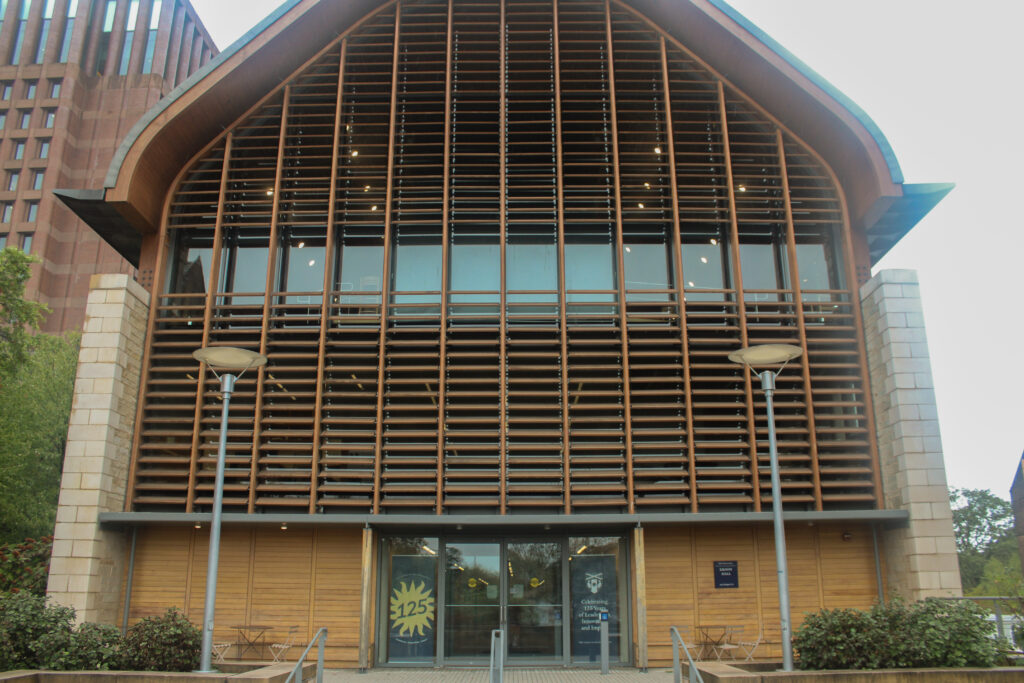Science
Yale School of the Environment Introduces One-Year Executive Programs

Starting in August 2024, the Yale School of the Environment will launch two new Executive Master’s programs aimed at experienced professionals in the environmental sector. The Executive Master of Environmental Management (EMEM) and Executive Master of Forestry (EMF) are designed as one-year, accelerated programs catering to individuals with at least ten years of professional experience.
Dean Indy Burke emphasized in a recent statement that these programs will deliver a high-touch immersive educational experience akin to the school’s traditional two-year offerings. “The executive master’s degree programs will provide the same, high-touch immersive experience but in a highly personalized program that is designed specifically for senior leaders and mid-career professionals,” Burke said.
The new offerings are a revival of the school’s original one-year master’s programs, which were renamed and restructured to fit today’s educational landscape. According to Mark Ashton, the director of Yale Forests and senior associate dean for The Forest School, the EMEM and EMF programs reflect a commitment to addressing the evolving needs of environmental leaders.
Participants in the EMF program, for instance, must possess a degree in forestry, natural resources, or a related field, alongside a decade of relevant work experience. This requirement ensures that students bring established knowledge and skills to the program, fostering a richer learning environment.
Alumnus Agustín Carbó, who graduated from the mid-career residential program in 2012, shared his transformative experience. “This was an amazing experience,” Carbó stated in an email, expressing a desire to have taken more classes. He noted that the program provided him with a holistic perspective on environmental and energy issues, which he later applied while serving as the inaugural chairman of the Puerto Rico Energy Bureau.
Carbó highlighted the integrated approach he developed while working as executive director of the Puerto Rico Solid Waste Authority, connecting climate change to waste management challenges. “This was like working with many intersections to resolve an environmental problem,” he explained.
The fully residential nature of these programs is another key feature, allowing students to immerse themselves in the academic community on Yale’s campus. Kenneth Gillingham, the school’s senior associate dean of academic affairs, noted the value that mid-career professionals bring to the institution. “They add greatly to intellectual discourse and provide keen insights to help our existing master’s students learn about career opportunities,” Gillingham explained.
Founded in 1900 as the Yale Forest School, the Yale School of the Environment has consistently sought to adapt its programs to meet the demands of a changing world. The introduction of these one-year master’s degrees marks a significant step in this ongoing evolution, aiming to equip seasoned professionals with the skills and knowledge needed to tackle pressing environmental challenges.
As the school prepares to welcome its first cohort in August 2024, the EMEM and EMF programs stand to enhance the educational experience at Yale while elevating the careers of established environmental leaders.
-

 Business1 week ago
Business1 week agoIconic Sand Dollar Social Club Listed for $3 Million in Folly Beach
-

 Politics1 week ago
Politics1 week agoAfghan Refugee Detained by ICE After Asylum Hearing in New York
-

 Health1 week ago
Health1 week agoPeptilogics Secures $78 Million to Combat Prosthetic Joint Infections
-

 Science1 week ago
Science1 week agoResearchers Achieve Fastest Genome Sequencing in Under Four Hours
-

 Health1 week ago
Health1 week agoResearcher Uncovers Zika Virus Pathway to Placenta Using Nanotubes
-

 Lifestyle1 week ago
Lifestyle1 week agoJump for Good: San Clemente Pier Fundraiser Allows Legal Leaps
-

 World1 week ago
World1 week agoUS Passport Ranks Drop Out of Top 10 for First Time Ever
-

 Entertainment1 week ago
Entertainment1 week agoJennifer Lopez Addresses A-Rod Split in Candid Interview
-

 Business1 week ago
Business1 week agoSan Jose High-Rise Faces Foreclosure Over $182.5 Million Loan
-

 Top Stories6 days ago
Top Stories6 days agoChicago Symphony Orchestra Dazzles with Berlioz Under Mäkelä
-

 World1 week ago
World1 week agoRegional Pilots’ Salaries Surge to Six Figures in 2025
-

 Science1 week ago
Science1 week agoMars Observed: Detailed Imaging Reveals Dust Avalanche Dynamics









